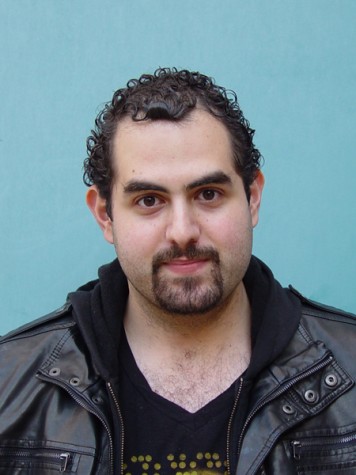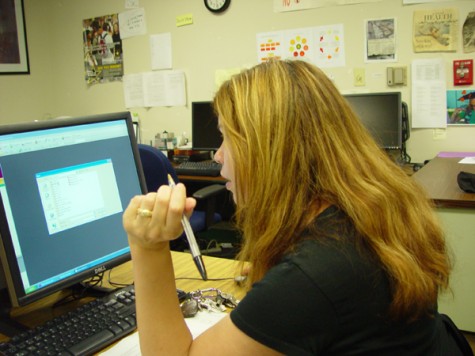The difference between a hootchie and a whore is that a whore only accepts cash. The difference between a hootchie and Shoshannah is that a hootchie can’t write and play seven personalities, confront stereotypes, slash limits, and pave room for change.
Early Life
Shoshannah’s roots stem from a single- parent home in Chicago where she lived with her mother. "I’ve always been a writer at heart. I have been writing since I could put stories together," she says. Shoshannah was taunted by success since she was young. "I was 7 years old, watching TV, and I saw somebody win something and I said, ‘Mommy, I want to be that, I want to be number one!’" she recalls. "She said, ‘Oh really? OK, then you go out and you do it. You do whatever you want and as long as you got the drive to pursue it."
At a young age, Shoshannah found herself fascinated with the social outcasts of Chicago: the hootchies. Though some wrote off these women as sluts, she was curious as to why they became that way. Shoshannah’s primary social interest began to revolve around what she refers to as "the modern-day Black Experience."
For her undergraduate career, Shoshannah attended Chicago State University. Her involvement in speech and debate tournaments paved a pathway to acting, and after having preformed in over twenty-four productions, theater became her forté. In 1999, she met director, stage manager, actor, and producer Antaeus Gayles, who took a particular interest in her work. "When I saw her act, she just had it from the beginning. I was like, that’s the one," he says.
They worked together in several productions and found themselves everywhere from Africa to Trinidad to off-Broadway. "A lot of people liked us and they said they wanted us to do their pieces," says Gayles, with a characteristically genuine smile.
After seeing a few friends perform one-person shows, Shoshannah yearned to create one of her own. She sat through show after show, knowing this was not only something she was capable of, but something she was obsessed with. Shoshannah took a chance, "One day you reach a point when you decide to do your own show," she said. "Hey, I’ve already got this in mind, why don’t I just go ahead, and run with it? I’m going to go ahead, finish it, and do it." Her stage play, "That Hootchie," was written 2003.
That Hootchie
"That Hootchie" follows Shovanda Thomas through her past to capture the experiences that have led up to where the play begins: Shovanda in anger management therapy with a black eye. Like many, Shovanda, blames her family for her situation and uses that leverage to justify her offences. "My family is the reason why I is what I is," she says. She’s not alone, Shovanda’s cousin and enabler, Juanita, teaches her tricks of the trade like memorizing the social security numbers of boyfriends in case she gets pregnant.
By playing seven different characters, Shoshanna explodes stereotypes from the inside out; exposing the walls each of her characters is enclosed in because of external circumstances. Shoshannah soon found out that the issues in the play were closer to home than she thought. Soon after "That Hootchie" began production, she had a cousin in the foster care system commit suicide. The young girl had been a victim of abuse, and that encouraged Shoshannah get the story out.
"To so many [teenagers] some girls are just ‘that hootchie’ – she was embarking on that path, if she hadn’t killed herself." Shoshanna wanted victims to know that there were other options. Shoshannah’s upbringing has led her to believe that an individual’s past is no excuse. "You don’t want to be held hostage by anyone else’s belief system. You’ve got to hold your own, and you don’t have to be a statistic. Instead of thinking what is morally right or what is religiously right, you need to do what makes the most sense to you." Her experiences have shown that individuals shouldn’t write themselves off as a statistic; they have the power to break the cycle.
Shoshannah and Gayles believe college can provide the perfect environment to start over. "If you’re in college now, this is your time. This is your sole decision to either let the baggage of your parent’s influence and your upbringing bring you down, or take this opportunity to absorb everything you can and develop your own thoughts and your own point of view and decide what makes sense," says Gayles. "Everything in your life has been B.S. ’til this point," he continues. "You are completely on your own, there’s no such thing as excuses anymore – let’s get it done!"
Though people go in with an idea of what the play will be like, the impact it leaves is pleasantly surprising. "They have a preconceived notion that it’s going to be like a caricature, something to laugh at, a ghetto chick. They don’t realize that there is actually a story behind the character." "My hope is that they hear that there is more to a person than the exterior. I received letters and comments that were hitting home. A girl wrote, ‘I felt like I have to respect myself, think about this more and stop letting my boyfriend push me around.’ When you’re a teenager, you’re fearless, you think you’re invincible, you’re going to make it through everything, through whatever circumstances… and maybe after that she was like, ‘maybe I need to rethink that.’"
A Social Consciousness
With the success of "That Hootchie" in Chicago, Shoshannah and Gayles are trying to utilize the public school system to help attack issues within the play at their source. "We’re trying to get it into schools as a public measure – to open up a forum for young girls to speak – but it’s hard to present a production like "That Hootchie" at a school if you’re not comfortable with having your work censored. We haven’t compromised the script, we haven’t compromised the characters, or the name of the piece," says Shoshannah. "Teachers come up and tell us, ‘don’t change a thing’ – they [the students] need to see it – that’s them all day."
The play ran in Chicago from 2005 to 2008, almost 2 1/2 years. Shoshannah enlightened theatregoers nightly while she and her team held down day jobs. Shoshannah’s wit, courage, talent and the unwavering support of producer/director Gayles led them to dream big, and guided them on a mission to share "That Hootchie" with as many audiences as possible.
"We wanted to show our wares in the right arenas," Gayles says. This led them to Los Angeles, a place with endless potential for her endless talents. The two made the move from the Windy City to the City of Angels knowing Hollywood can get ugly; fortunately they learned to make their own way. In March, "That Hootchie" ran a successful three-and-a-half-week run at the Write Act Repertory Theater in Hollywood.
"Everybody is ready for reality, they’re ready for life, they want to see it portrayed and let it go where life goes," says Gayles. "In Los Angeles, we were competing at a higher level," says Shoshannah. "You can tell them you’ve done New York, you’ve done Chicago, you have done off-Broadway and they’ll say ‘so what? You’re in LA now.’ It’s film, it’s theater, it’s like the Super Bowl of entertainment, and that’s what you’ll be competing in with actors whose egos are very special to them. There is a time you want to be rich, there is a time when you want everybody to know your name and all that stuff, and then there is a time when you want to be appreciated for what you do. When you do it well, people really recognize it."
"We hold ourselves to higher standards," says Gayles, "and you have to deliver. We’ll carve our own way and bring the mainstream to us," says Gayles. They quickly learned that you couldn’t play by the rules in Hollywood. "Let’s stop waiting for people to make us famous and let’s make ourselves famous by doing the webisodes and doing the plays," says Shoshannah.
Besides being a playwright, Shoshannah is a poet, spoken word artist, and author of "The Juicy Flow." She’s written and stared in a webisode series called "Angie and Cookie." Her film history includes "All In Gravity," and "Internal Behaviors."
She will be hosting and performing in "Urban Legends," a spoken word event, on Sept. 19, at the Write Act Repertory Theater and "That Hootchie," will be premiering in New York in the fall.Here are some exerpts from the "That Hootchie":


